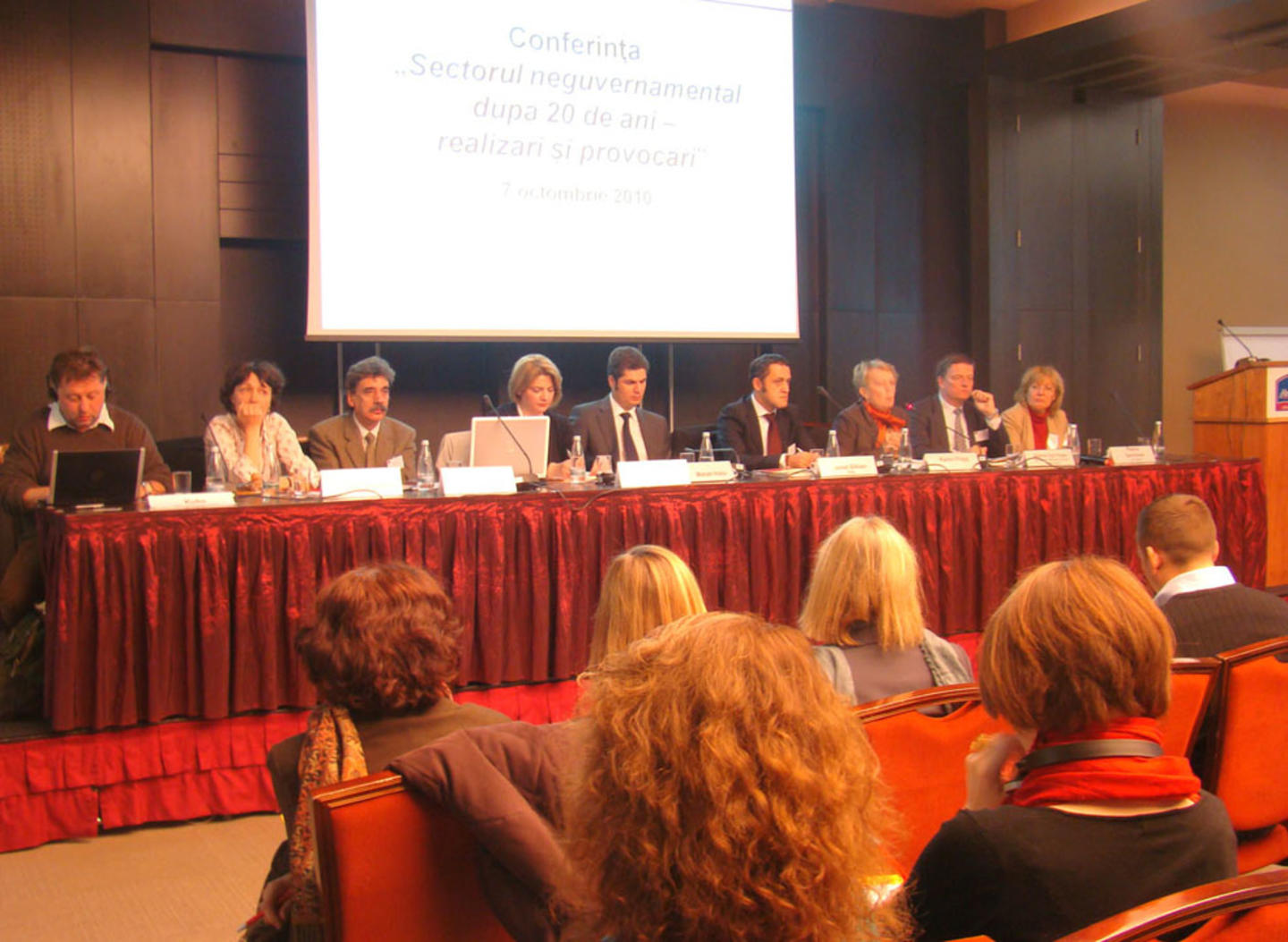The report, which sums up the development of the non-governmental sector in Romania over the past 20 years, was launched at a seminar in Bucharest on 7 October. The seminar brought together close to 300 participants to discuss the accomplishments and challenges of the Romanian NGO sector.
Suffering from limited resources
Many of the NGOs in Romania are today facing difficulties due to limited financial resources. Even though they do receive donations from citizens, subsidies remain their main form of support. Few Romanian NGOs receive financial support from public authorities, making them dependent on grants from the European Union and foreign or international foundations instead. For this reason, foreign funds are the most important funding source for more than one third of all non-governmental organisations in the country.
However, gaining access to such funding has become increasingly difficult. The report states that the Romanian NGO sector faces continuous challenges in identifying alternative funding resources, especially due to the fact that the EU accession has meant the withdrawal of major international donors and the end of a time when the access to external financing resources was relatively easy.
Important societal functions
As a result, the EEA and Norway Grants have become a key source of funding for Romanian NGOs. In the period 2004-09, Iceland, Liechtenstein and Norway provided the NGO sector in Romania with €5.1 million in grant support through a fund tailored to the needs of NGOs. Grants were awarded to 115 NGO projects in the fields of human rights protection, anti-discrimination and social inclusion, children and youth, social services, protection of the environment, and conservation of cultural heritage.
The report states that the NGOs in Romania perform important societal functions, both in terms of the social services they offer citizens and in terms of employment. Even though 68% of active NGOs in Romania rely exclusively on volunteer work, the NGOs are also a large provider of jobs: in 2008, close to 90,000 people in Romania made a living by working for one of the NGOs. The report also stresses the importance of NGOs focusing on education in a country where the educational system is continuously being reformed and is suffering from low budgetary resources.
“An example of accountability”
The report has been financed by the Trust for Civil Society in Central and Eastern Europe, which was represented at the launching conference in Bucharest by its Executive Director, Rayna Gavrilova. She said that the NGO sector, with its accountability, transparency and professionalism, had become an example to be followed by the public sector.
In his presentation about the EEA and Norway Grants’ support to the NGO sector in Romania, Deputy Director General Steinar Hagen, of the Norwegian Ministry of Foreign Affairs, said that the Norwegian government considers civil society an active partner with a strong voice in all important debates. As a result, strengthening civil society in Central and Southern Europe is an important priority for the EEA Grants and Norway Grants. For the funding period 2009-14, at least 10% of the EEA Grants to each country are earmarked for civil society projects.
Photo: Seminar on the accomplishments and challenges of the Romanian NGO sector, held in Bucharest on 7 October 2010. Photo: The Norwegian Embassy in Bucharest.
